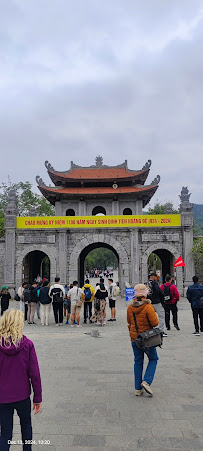10 Stunning Beaches in Vietnam You Can’t Miss
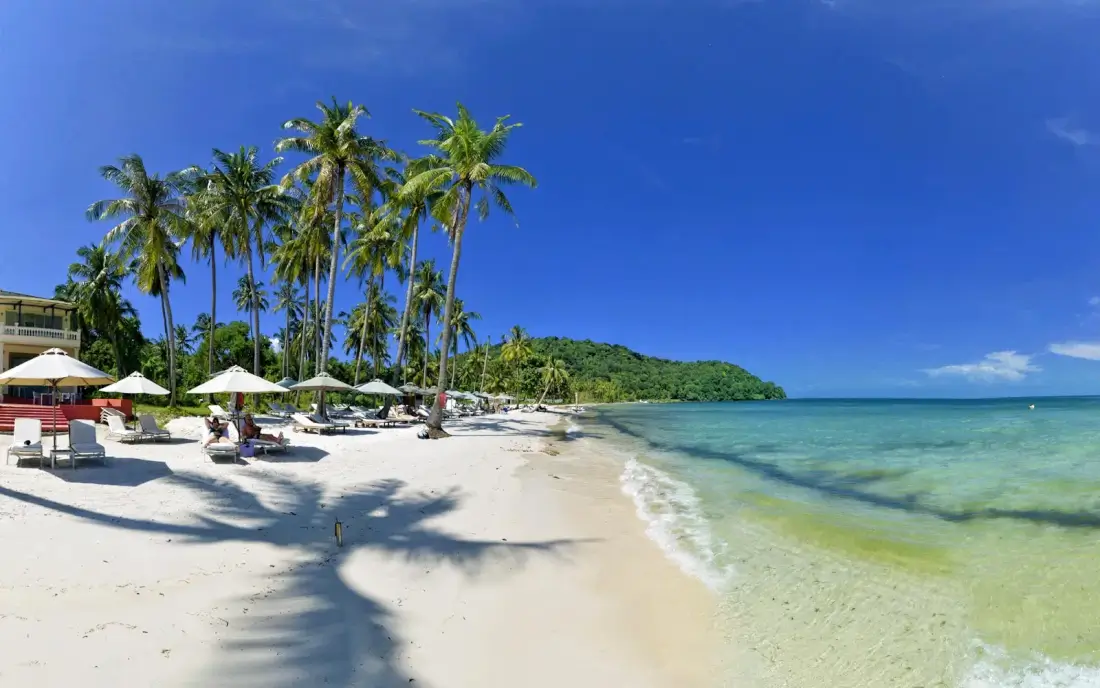
My Khe Beach, a gorgeous 20-mile stretch of white sand beach in Da Nang, Vietnam, is well-known for its crystal-clear waters, soft waves, and lively environment. With its stunning views and tranquil tropical atmosphere, it is a favourite with both ...
Read more..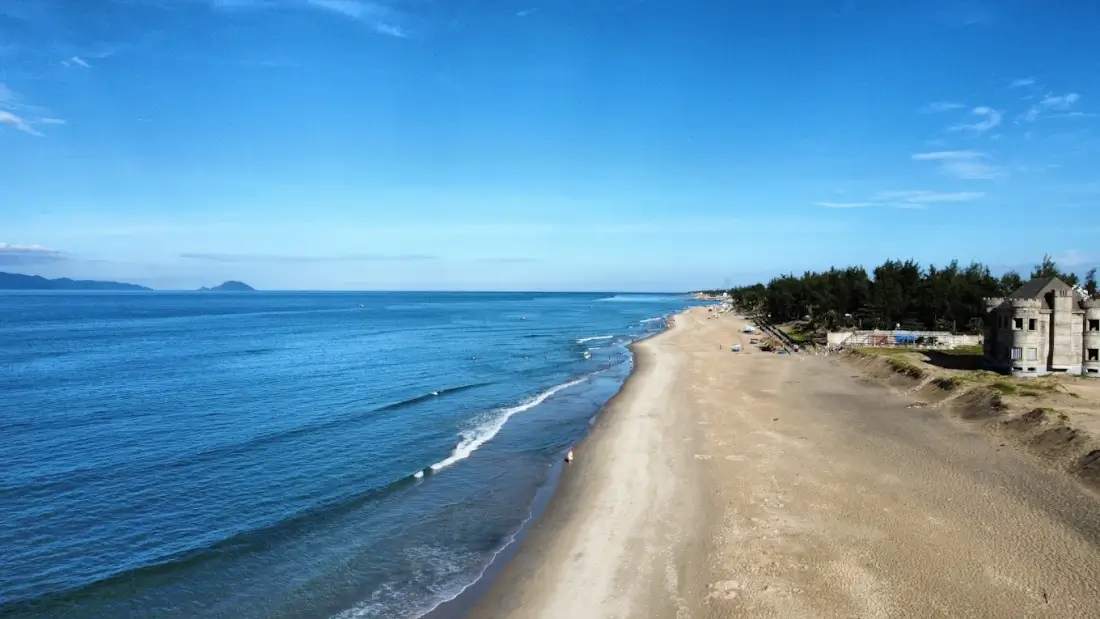
One of the best Vietnam beaches is An Bang Beach, which is close to Hoi An. It is well-known for its serene blue waters, smooth white sand, and easygoing charm. It is the ideal place to unwind, swim, and enjoy cafés by the sea. This tranquil getawa...
Read more..
A hidden treasure among Vietnam's beaches is Bai Sao Beach, which is situated on Phu Quoc Island. It is well-known for its fine white sand and glistening turquoise sea, providing a peaceful environment that is perfect for swimming and tanning. It i...
Read more..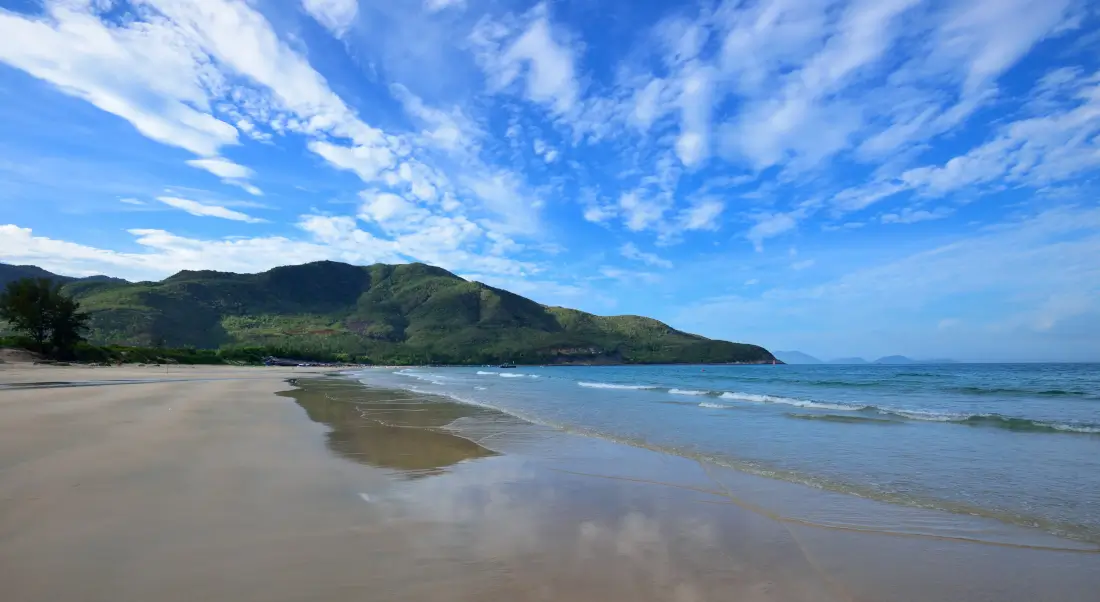
Nha Trang Beach, a dynamic highlight among Vietnam's beaches, is known for its lengthy expanse of golden sand and bustling coastal atmosphere. It's perfect for nightlife, water sports, and sunbathing, and it's surrounded by resorts and mountains. T...
Read more..
One of the best beaches in Vietnam is Doc Let Beach. It is close to Nha Trang and has quiet surroundings, serene shallow waters, and fine white sand. Doc Let provides a genuine seaside experience away from the masses, making it the ideal place for ...
Read more..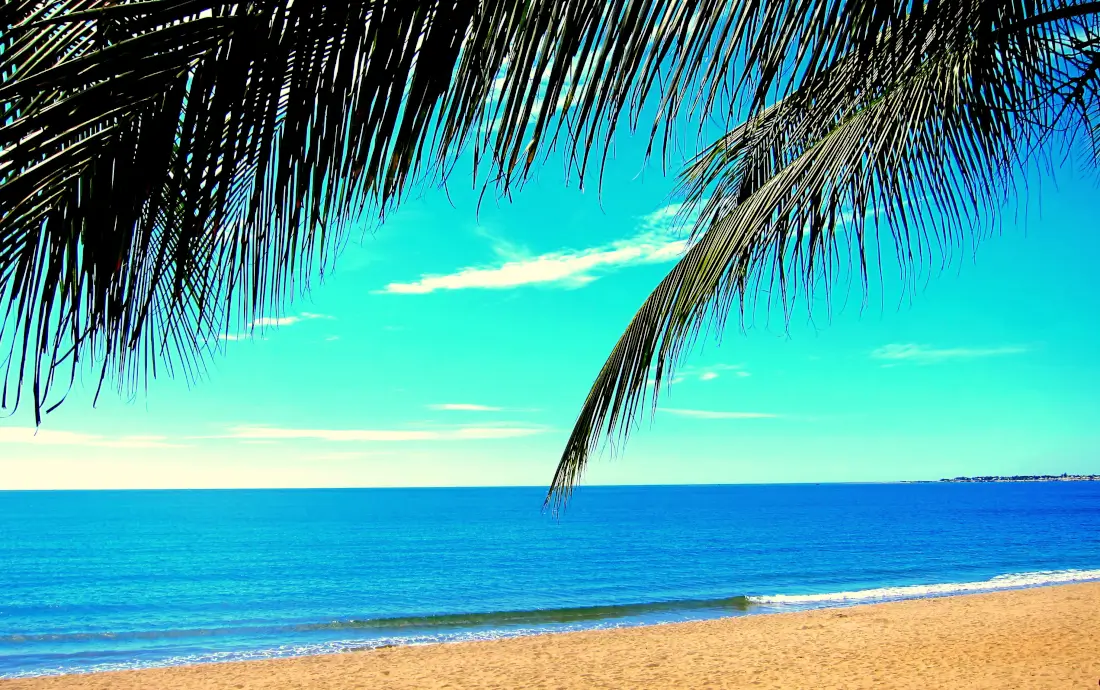
One of the most beautiful hidden gems among Vietnam's beaches is Ky Co Beach in Quy Nhon. It offers stunning landscapes and a tranquil atmosphere with its golden beaches, steep cliffs, and blue waters. A must-visit seaside destination for nature en...
Read more..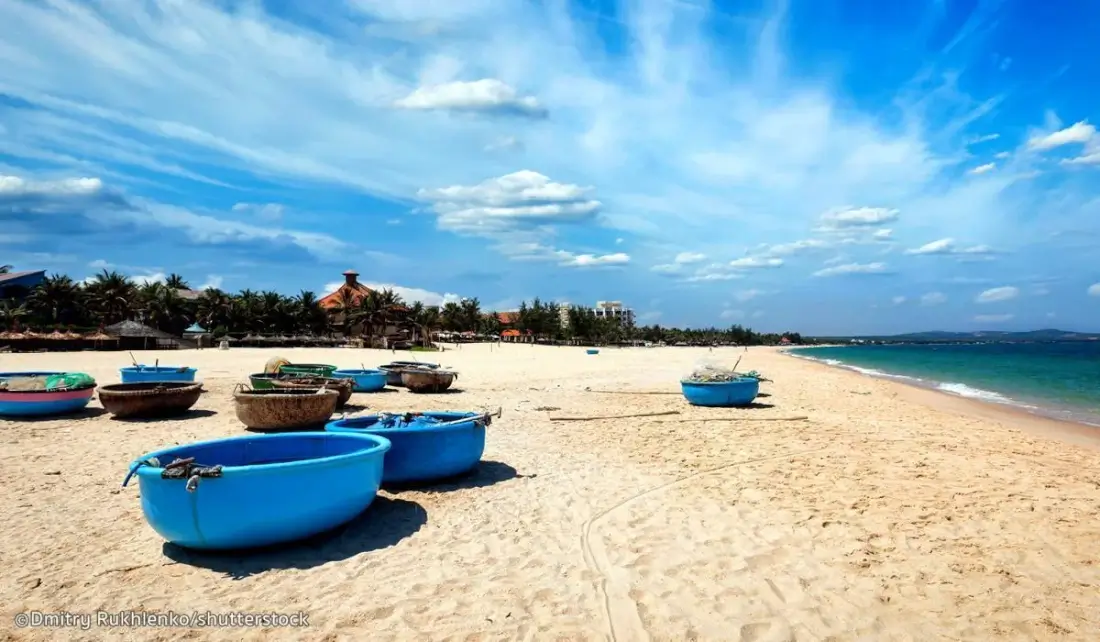
Mui Ne Beach, located in southern Vietnam, is one of the best beaches in Vietnam. Known for its golden sands, steady winds, and striking red and white sand dunes nearby, it’s a hotspot for kite surfing and windsurfing. The beach’s laid-back vibe an...
Read more..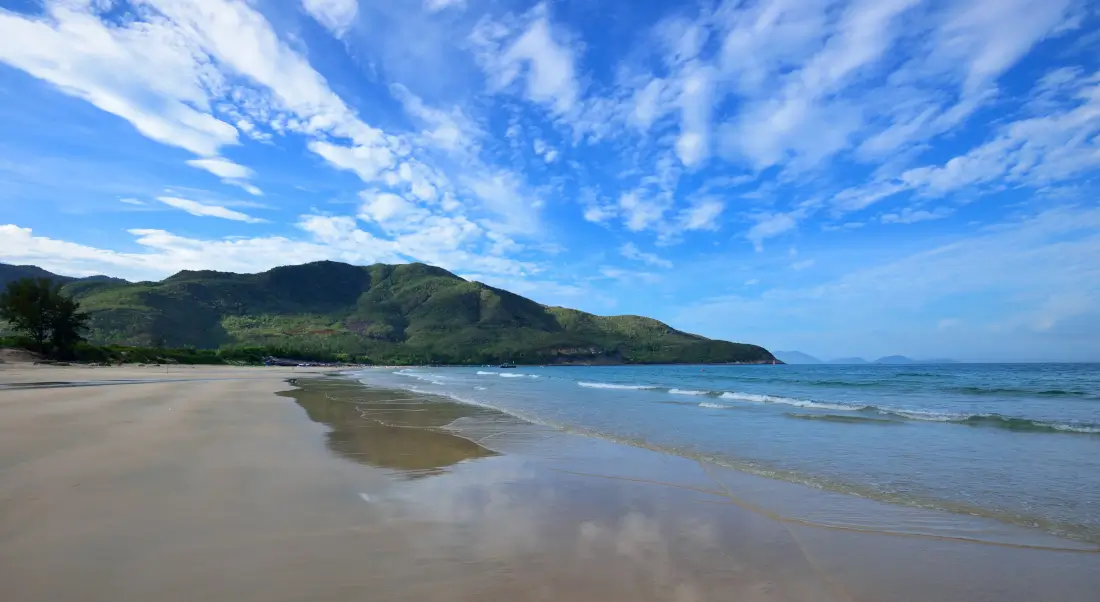
One of the best beaches in Vietnam is Cua Dai Beach, which is close to Hoi An. It's perfect for swimming and unwinding because of its soft golden shore, mild waves, and views of the Cham Islands. Despite erosion, Cua Dai continues to provide a tran...
Read more..
Among the beaches in Vietnam, Ho Coc Beach is a serene treasure. It is situated in the province of Ba Ria-Vung Tau and has golden sand, crystal-clear blue waters, and a tranquil atmosphere. Ho Coc, encircled by hot springs and wooded hills, is the ...
Read more..
The beaches of Con Dao Island are some of the most isolated and immaculate in Vietnam. These beaches, which are off the southern coast, have beautiful white sand, clear waters, and lush tropical environs. These beaches offer a tranquil haven with a...
Read more..Frequently Asked Questions (FAQs)
One of the best Vietnam beaches for families is An Bang Beach in Hoi An. Known for its gentle waves, clean sand, and relaxed vibe, it's ideal for children to swim safely and play. Numerous family-friendly resorts and restaurants are nearby, offering both comfort and convenience. Unlike more crowded spots, An Bang retains a peaceful charm while providing water activities like kayaking and paddleboarding. Its proximity to Hoi An Ancient Town allows families to blend beach fun with cultural exploration. Among all Vietnam beaches, An Bang stands out for its safety, accessibility, and overall appeal to travellers with kids.
Yes, Vietnam beaches are generally clean and safe for swimming, especially in popular tourist areas like An Bang Beach in Hoi An, My Khe Beach in Da Nang, and Bai Sao Beach in Phu Quoc. These beaches offer clear water, gentle waves and are often maintained by local authorities or resorts. Doc Let and Ky Co beaches are also known for their pristine conditions. However, safety can vary with the season. During the rainy season, typically from October to December in central Vietnam, strong currents and debris may occur. It's always best to swim in designated areas and follow local safety warnings.
Yes, you can surf in Vietnam. While it’s not as famous as Indonesia or Hawaii, Vietnam offers some great surf spots, especially during the monsoon season from September to March. The central coast around Da Nang, My Khe Beach, and Non Nuoc Beach provides consistent waves for beginners and intermediates. Mui Ne is another popular location, known more for windsurfing and kitesurfing, but it also offers decent surfing conditions. The waves are typically more mellow, making them ideal for learning. Surf schools and board rentals are available in major surf towns. For the best experience, check local surf forecasts before heading out.
One of the best beaches in Vietnam for couples is Ky Co Beach near Quy Nhon. Often called the "Maldives of Vietnam," it offers clear turquoise waters, soft white sand, and a secluded atmosphere perfect for romance. Surrounded by cliffs and untouched nature, it's an ideal escape for couples looking to relax or enjoy snorkelling and kayaking together. The beach is less crowded than other coastal spots, making it feel more intimate and special. If you're looking for serene and romantic places to visit in Vietnam beaches, Ky Co Beach stands out as a top destination for couples seeking privacy and beauty.
Some of the most beautiful yet less crowded Vietnam beaches include Doc Let Beach near Nha Trang, known for its quiet charm and soft white sand. Ho Coc Beach, a few hours from Ho Chi Minh City, offers a peaceful escape with calm waters and forested surroundings. Ky Co Beach near Quy Nhon is another offbeat gem, accessible by boat and ideal for couples or nature lovers. Con Dao Island beaches are remote, pristine, and perfect for those seeking solitude and natural beauty. These hidden Vietnamese beaches provide a more relaxed experience, away from the crowds of typical tourist spots.
Yes, you can camp or stay in beach huts in Vietnam, especially in less commercialised coastal areas. Beaches like Doc Let, Ky Co, Ho Coc, and parts of Con Dao Island offer rustic camping options or simple beach bungalows. Some resorts and local operators even provide tents, hammocks, or thatched huts right on the sand. While many beaches are dominated by high-end resorts, you can find budget-friendly huts and campsites if you venture slightly off the usual path. Always check if overnight stays are permitted, and bring essentials if you're camping, as facilities can be minimal in remote areas.
Nha Trang Sea Festival
One of the most prominent beach events in Vietnam is the Nha Trang Sea Festival, held every two years in the coastal city of Nha Trang. This festival celebrates the region’s maritime culture with a vibrant mix of cultural performances, beach sports, seafood fairs, art exhibitions, and parades. It typically takes place in June and attracts both locals and tourists.
Da Nang International Fireworks Festival
Although not a traditional Vietnam beach festival, the Da Nang International Fireworks Festival (DIFF) is a major annual event that runs from late May to July. While the fireworks displays are centred over the Han River, many spectators gather along Da Nang’s beaches to watch the colourful shows in a relaxed, festive atmosphere.
Mui Ne Beach Events
Mui Ne is known for its strong coastal winds and is a popular destination for water sports. Throughout the year, the beach hosts various informal events, including international kitesurfing competitions and beachside music gatherings. These events add to the area’s laid-back, sporty vibe and draw a lively international crowd.
Hoi An Lantern Festival and Beachside Activities
While the Hoi An Lantern Festival takes place in the historic Old Town, its influence extends to nearby beaches like An Bang. During the monthly full moon celebration, beach restaurants and venues often host special dinners, cultural performances, and local festivities, creating a festive seaside extension of the town’s traditional event.
Yes, snorkelling is a popular activity at Vietnam beaches, thanks to the country’s long coastline and clear, warm waters. Several beach destinations are known for offering excellent snorkelling experiences. In particular, Nha Trang is famous for its coral reefs and marine life, with Hon Mun Island being a top spot for underwater exploration. Phu Quoc Island is another favourite, offering calm seas and rich biodiversity around areas like the An Thoi Archipelago.
Con Dao, a more remote group of islands, is also gaining popularity due to its unspoiled coral reefs and pristine waters. While not every beach in Vietnam is ideal for snorkelling, many Vietnam's beaches provide easy access to vibrant marine ecosystems, making it a worthwhile activity for both beginners and experienced snorkelers.
The best time of day to visit Vietnam's beaches is usually early in the morning or late in the afternoon. In the morning, the weather is cooler, the sunlight is softer, and the beaches are less crowded, making it ideal for a peaceful swim, walk, or photos. Late afternoon is also a great time to enjoy the beach, as the heat of the day begins to fade and the sunset creates a beautiful backdrop. Avoid midday, especially from 11 AM to 3 PM, as it can be extremely hot due to strong sun exposure and higher UV levels. For the most comfortable and enjoyable beach experience, aim for early or late hours of the day.
Vietnam beaches can still be enjoyable during the monsoon season, but the experience largely depends on the region and timing. The country has two distinct monsoon periods: the southwest monsoon (May to October) affects the southern beaches like Phu Quoc and Mui Ne, while the northeast monsoon (October to April) brings more rain to central beaches such as Da Nang, Hoi An, and Nha Trang.
During the monsoon, beaches may experience rougher seas, higher tides, and occasional storms, which can limit activities like swimming, snorkelling, or sunbathing. However, there are often breaks in the rain, and some travellers enjoy the quieter atmosphere, lower prices, and lush scenery that the season brings. If visiting during this time, it's best to check regional forecasts and stay flexible with beach plans. Overall, while Vietnam's beaches are not at their peak during the monsoon, they can still offer a pleasant experience with the right expectations.
Yes, several beaches in Vietnam are home to beautiful coral reefs, making them great destinations for snorkelling and diving. Nha Trang is one of the most popular spots, especially around Hon Mun Island, which is part of a marine protected area known for its vibrant coral and marine biodiversity. Phu Quoc Island also offers excellent coral reef viewing, particularly in the An Thoi Archipelago, where clear waters and colourful reefs attract snorkelers and divers. Con Dao Islands are another top choice, with pristine coral reefs and relatively untouched marine ecosystems. These Vietnam beaches provide not only scenic coastal beauty but also rich underwater experiences for nature lovers and adventure seekers.
Some Vietnam beaches do have lifeguards, particularly in more developed and tourist-friendly areas, but coverage can vary. Popular beaches like My Khe in Da Nang, Nha Trang Beach, and some stretches of Phu Quoc often have designated lifeguard stations, especially during peak hours and tourist seasons. However, many smaller or less-developed beaches may not have any lifeguard presence at all. It's always important for visitors to be cautious, pay attention to warning signs or flags, and avoid swimming in rough conditions, especially if no lifeguards are on duty. While beaches in Vietnam are generally safe, being aware of your surroundings and swimming in designated areas is the best way to stay protected.
Yes, you can definitely do scuba diving in Vietnam, and it's a popular activity at several coastal destinations. Nha Trang is the most established scuba diving hub, known for its dive schools and sites like Hon Mun Marine Protected Area, where divers can explore coral reefs and a variety of marine life. Phu Quoc Island also offers good diving opportunities, particularly around the An Thoi Archipelago in the south, which features clear waters and diverse underwater landscapes. The Con Dao Islands are another excellent spot for more experienced divers, offering less crowded dive sites and rich marine biodiversity. While Vietnam's beaches may not be as famous for diving as some other Southeast Asian destinations, they still offer rewarding experiences for both beginners and certified divers.
Some of the safest beaches in Vietnam are located in well-developed tourist areas with calm waters, clean surroundings, and available safety services like lifeguards and medical access. My Khe Beach in Da Nang is widely considered one of the safest, thanks to its gentle waves, regular lifeguard patrols, and good infrastructure. Nha Trang Beach, with its well-maintained and closely monitored central areas, is also a safe choice. An Bang Beach near Hoi An offers a relaxed and safe environment, with clear waters and a friendly atmosphere, making it ideal for families. On Phu Quoc Island, Long Beach and Sao Beach are known for their calm, shallow waters and peaceful settings. While these Vietnam beaches are generally safe, it’s still important to follow local guidelines, be mindful of weather conditions, and swim in designated areas for the best experience.
For a Vietnam beach trip, it's best to pack light, comfortable, and practical items suited to the tropical climate and beach activities. Essentials include swimwear, quick-dry clothing, flip-flops or sandals, and a wide-brimmed hat or cap for sun protection. Don’t forget sunscreen with high SPF, sunglasses, and a reusable water bottle to stay hydrated. A lightweight beach towel, waterproof phone pouch, and dry bag can be handy for water-related activities. If you plan to snorkel, it is useful to bring your own mask, although rentals are often available. Insect repellent is recommended, especially if you're visiting more remote or forested coastal areas. A light jacket or shawl may also be helpful for cooler evenings or sudden rain showers. Overall, packing for Vietnam beaches should focus on comfort, sun safety, and readiness for both water and land adventures.














